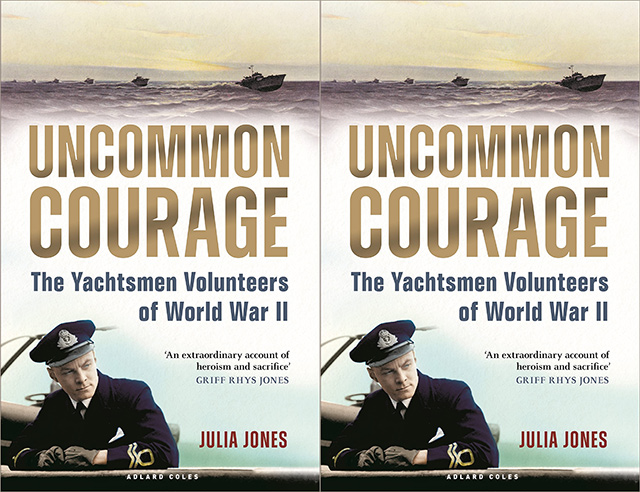Uncommon Courage: The Yachtsmen Volunteers of World War II
Book review

Uncommon Courage: The Yachtsmen Volunteers of World War II, Julia Jones, Adlard Coles, 2022, 310p, £20-00. ISBN 978-1-4729-87105
Historians are frequently obsessed with defining what constitutes a primary source, a source which will be guaranteed to yield reliable data. What Julia Jones has done is to produce a book which comes very close to being a primary source because of what it offers us in terms of insights into the naval preparations for the Second World War and indeed perspectives on how that war was undertaken.
My instinct is that this is really a primary source. Having known that her father had been in the Royal Naval Volunteer Reserve [RNVR], and that he had seen active service from 1939, after his death she discovered logbooks and other materials in the attic, which sparked an energetic investigation of how that naval career had evolved. How exactly had a stockbroker’s clerk from Birmingham become a naval officer? Using a vast range of logbooks, diaries and her easy access to other materials through her work at Yachting Monthly, she has assembled a feature of the naval preparations with which most of us would be unfamiliar. The RNVR had been formally established in 1903 and offered training to its volunteers but it had been deliberately limited to a force of less than six thousand men.
What Julia Jones reveals is that in 1936 a decision was made to recruit some additional personnel into what was to be known as the Royal Naval Volunteer Supplementary Reserve [RNVSR]. By the middle of 1939 a disparate group of amateur sailors had been assembled, with backgrounds from very prominent families to people like Julia’s father. Some had previously unsuccessfully tried to join the RNVR but had been deemed unsuitable because of factors such their lack of potential to be team players; and some had been declared medically unfit. The names that emerge from her research include Ian Fleming, Ludovic Kennedy, Peter Scott and Nicholas Monsarrat, all subsequently leading a huge range of distinguished careers but all originally having been amateur sailors drawn into the national effort and, after September 1939, into active service.
As with what we have discovered from the secrecy and discretion of those involved at Bletchley Park, this is another largely overlooked feature of our war preparations and active service, now exposed to us by Julia Jones’ painstaking research.

